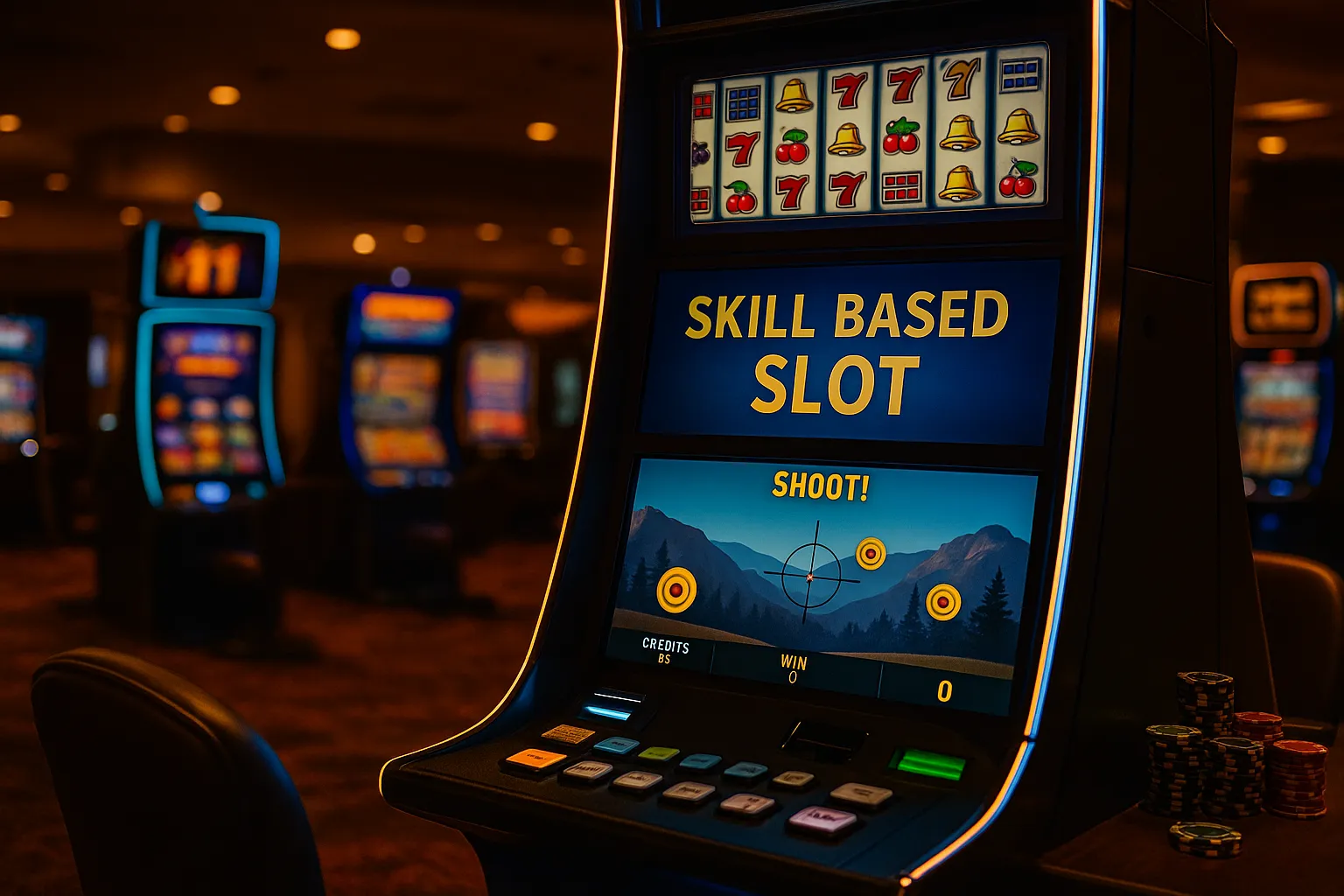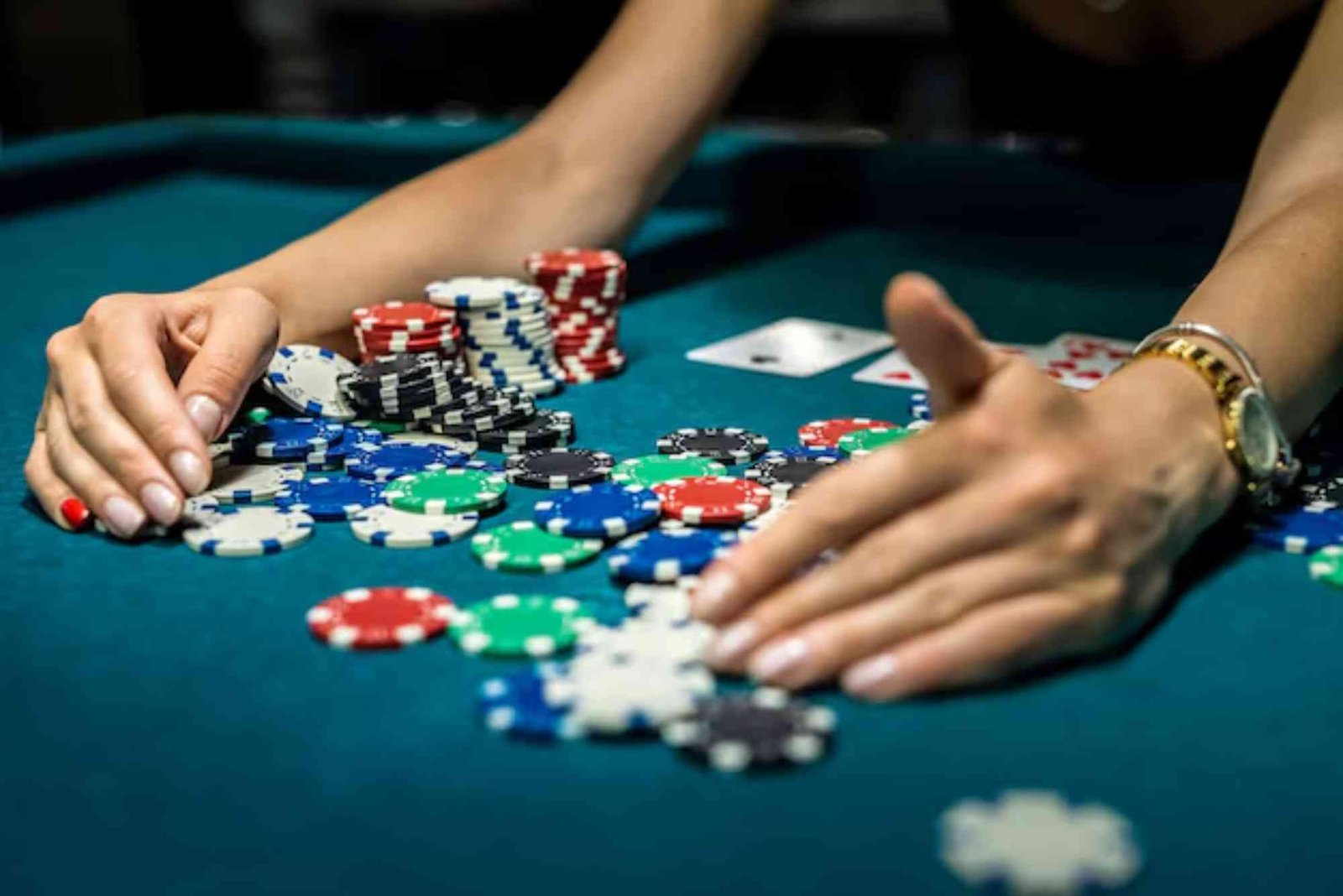Skill-based slots burst onto casino floors with the promise that you could finally influence the outcome. No more passive spinning, said the billboards—your reflexes, aim, or puzzle-solving chops could tilt the odds. After years of testing these machines in Vegas arcades, online demos, and UK-facing lobbies, I can tell you: there’s a kernel of truth buried in a mountain of marketing. The real question is how much that kernel matters to your bankroll—and whether the “skill” part is anything more than window dressing.
What “Skill-Based” Actually Means in Modern Slots
Most so-called skill slots bolt a mini-game onto a standard RNG-driven base. You still spin reels that are governed by random number generators; you still face a predetermined RTP. The “skill” portion typically shows up in a bonus round—maybe a timed shooter, a match-three puzzle, or a driving game. Your performance can nudge the win amount within a narrow band the game designer already budgeted. In other words, the envelope is fixed; you’re just trying to grab the larger slice inside it.
I’ve played versions where a perfect score in the mini-game added 20–30% more to the bonus pot than a mediocre score. That felt good, but it didn’t rewrite the house edge. Casinos aren’t in the business of letting human accuracy bulldoze their math. They let you feel in control without actually surrendering profitability.
The Psychology: Control Illusion vs. Real Agency
Human brains crave agency. Slot designers know this. Giving you buttons to mash or targets to shoot scratches that itch. But ask yourself: if you were truly steering the payout, why would a casino offer the game in the first place? The illusion of control keeps you engaged longer—and engagement is revenue.
That illusion gets even stronger when you move away from tightly regulated environments. Outside the UKGC umbrella, you’ll find operators who hype interactivity and instant paydays. Some of the best fast withdrawal betting sites in the uk talk a big game about speed and fairness, but “fast cash-out” and “true skill influence” are separate promises. One is about banking convenience; the other is about core game math. Don’t conflate slick payment rails with a fundamentally player-friendly RTP curve.
Where Skill Can Matter (But Still Doesn’t Break the Game)
There are rare instances where your reaction time or memory can consistently boost you to the top of the bonus band. Think of it like playing a claw machine where you can choose which toy to grab—but the claw still loosens randomly. Over many sessions, a sharp player might squeeze a percent or two more theoretical value than a casual tapper. That’s meaningful over huge sample sizes, but most gamblers don’t put in arcade-level reps. The average player’s “skill” quickly plateaus, and fatigue erodes performance fast.
Some machines also cap how many times you can replay or practice the skill segment. Others “normalize” results, soft-adjusting difficulty so everyone lands near the same average. If you notice the mini-game suddenly getting harder the better you do, it’s not your imagination; dynamic difficulty keeps payouts within target.
Why Casinos Love the Term “Skill-Based”
Casinos chase new demographics. Younger players raised on consoles and mobile games don’t get fired up by static reels. Skill-based slots let casinos market to that crowd without redesigning the revenue model. They also help sidestep “slots are pure chance” stigma in certain jurisdictions. If regulators or lobbyists balk at passive gambling, calling it “interactive entertainment” and showing a joystick can shift perception.
From a design standpoint, these games generate data gold. How long do players spend in mini-games? When do they quit? Which mechanics retain attention? That data shapes future products and cross-promotions. So yes, part of the hype is a data play, not a player edge.
Comparing Skill Slots to Traditional Bonus Features
Traditional slots already include moments of interaction: pick-a-box bonuses, hold-and-spin features, gamble ladders. Skill-based layers just dramatize the interactivity. The core difference is the feeling of influence. In pick bonuses, most players accept it’s luck. In a shooter mini-game, you feel responsible for every miss. That can be fun—but also dangerous. If you underperform, you blame yourself, not variance, and you might chase “redemption” with more spins.
Online vs. Land-Based Skill Slot Experiences
Land-based skill slots often have tactile controls—steering wheels, light guns, touchscreens. It’s easier to immerse yourself. Online, “skill” usually means tapping a screen or timing a button press. Latency, device responsiveness, and even your mood play roles. I’ve seen online skill games that essentially boil down to “tap when the meter hits green,” which is barely different from pressing spin at the “right moment.” The gap between promise and reality widens when you’re on a phone at 2 AM.
Regulated UK sites tend to spell out RTP, volatility, and bonus structures clearly. Offshore brands can bury those details or phrase them creatively. If an online casino won’t show the math, assume the math favors them.
Bankroll Strategy: Treat Skill Slots Like High-Variance Games
Even if you’re a mini-game ninja, treat skill slots as high volatility. The base game often doles out weak wins to fund those showy bonuses. Budget for stretches of nothing and sporadic spikes. I keep a simple rule: if a skill slot’s bonus is the only time my input matters, I only feed it with “fun money” and set an ironclad session end. Hitting a great score feels awesome; missing and “trying again” because “I can do better” is how a night spirals.
Separate emotional and financial bankrolls. If you’re frustrated or tired, your performance tanks, and you’ll throw good money after bad trying to “prove” you can play better. Walk away, hydrate, come back with a clear head—or don’t come back at all.
RTP, Volatility, and the Hidden Levers
Skill slots rarely advertise how much of the RTP is allocated to the skill segment. If 10% of the overall RTP is tied to the mini-game, even perfect play just maximizes that slice. You can’t touch the other 90% governed by RNG. Volatility can also be masked: base-game hit rates might look decent, but average win size is feeble because the “budget” is saved for bonus theatrics.
Some studios even scale the bonus pot dynamically based on site-level performance. If a cluster of perfect-play results hits early in the day, you might see reduced bonus availability later. That’s speculation in some circles, but it’s a reminder that opaque systems rarely tilt toward the player.
Real-World Session Notes: My Wins and Facepalms
One night in Atlantic City, I spent an hour on a shooter-style slot. Hit the bonus four times, scored “excellent” twice, “good” twice. Net profit? £12. Was it fun? Absolutely. Did I feel I outplayed the machine? Sort of—but only because it let me feel that way. Another time, a buddy and I tag-teamed a puzzle-based bonus, swapping turns to stay sharp. We nailed it… and still landed in the middle bonus tier. The ceiling was simply too low to matter.
Online, latency killed me more than once. On a tablet with lag, my timing was off, and I left salty, convinced the game “robbed” me. In reality, I chose the wrong device for a timing game. Lesson learned.
Where Skill-Based Might Evolve Next
We’re seeing early experiments with peer-vs-peer elements, esports-style leaderboards, and even blockchain-verified outcomes. If genuine competitive gambling mini-games take off—where you play against other players for pooled pots—the skill equation could shift. But that’s a different product than house-banked slots. Until casinos invite true PvP with transparent odds, “skill-based slot” will mostly mean “bonus mini-game with a score multiplier.”
How to Decide if They’re Worth Your Time
Ask yourself two questions before you press start:
-
Am I here to feel in control or actually change my EV?
-
Do I have the stamina (and device) to consistently perform well?
If you just want arcade vibes layered onto gambling, skill slots scratch that itch. If you’re hunting true edge play, they’re a shiny detour. You’d be better off learning blackjack basic strategy, video poker paytables, or sports models where skill demonstrably shifts the edge.
Practical Tips to Stay Smart
-
Read the paytable: look for how the mini-game score affects payout bands.
-
Test the mini-game in demo mode until you know the patterns.
-
Set session limits before you start. Mini-games tempt “one more try.”
-
Track results. Feeling “in control” can blur losses. Numbers don’t lie.
-
Pick reputable casinos. Transparency matters more when features are complex.
Final Verdict: Hype With a Side of Fun
Skill-based slots aren’t a revolution. They’re a clever remix of old slot psychology with arcade gloss. They can be entertaining and even slightly rewarding if you’re sharp, but they don’t bulldoze the house edge. Treat them as another flavor in your gambling diet—fun when you want to play, pointless when you want to profit. If you understand that, you’ll never feel cheated by the marketing. You’ll just smile, take aim in the bonus, and remember that the real “skill” is knowing when to cash out.




